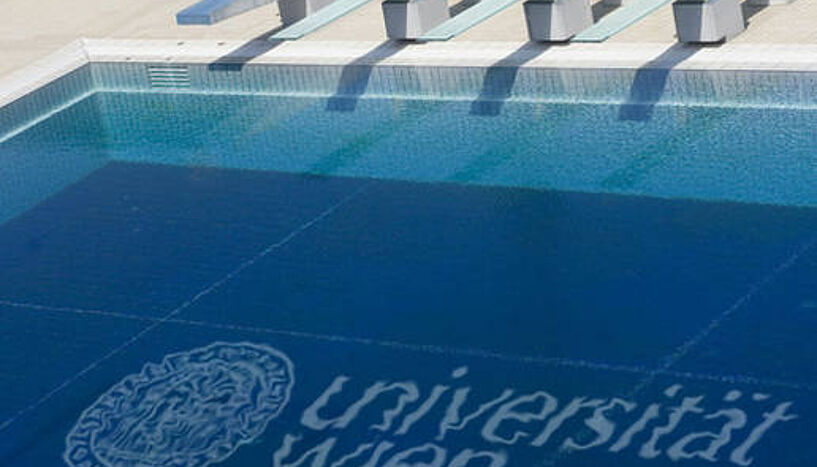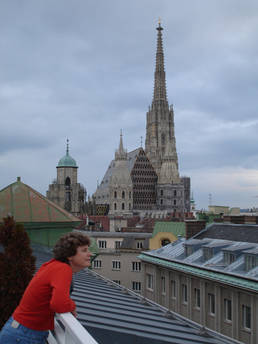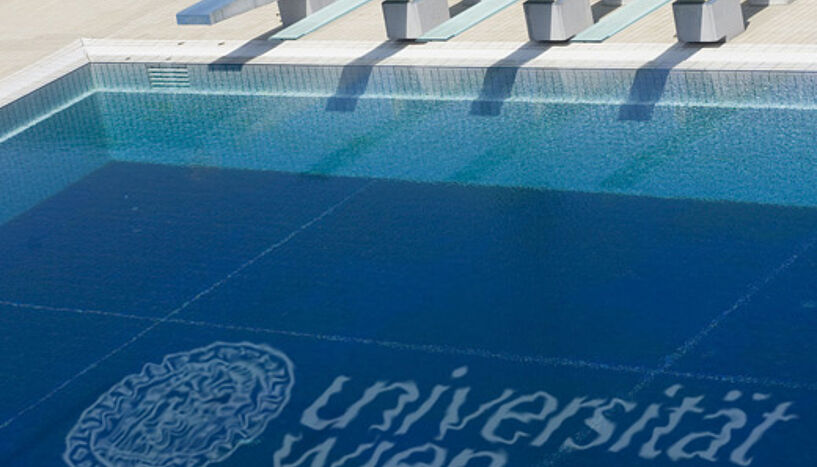Sommerserie: Wien erforschen (2)
| 14. August 2012
In der uni:view-Sommerserie erzählen internationale Lise-Meitner-Fellows von sich und ihrer Forschung an der Universität Wien, Zukunftsplänen und ihren Lieblingsplätzen in Wien. Heute: Christa Knellwolf King. Sie forscht am Institut für Anglistik und Amerikanistik. (In Englisch)
Why Vienna and the University of Vienna:
My main reason for choosing the University of Vienna was my shared research interests with Margarete Rubik, Head of the Department of English and American Studies, whom I had got to know as an inspiring colleague with an inexhaustible store of energy during a guest professorship in 2006. We could already look back on a successful track record of co-organised conferences and jointly edited collections of essays when I submitted our application. The University of Vienna has all the attractions of a large university, including good library facilities and a serious research tradition, and an added bonus is that it is located in one of the most beautiful cities in the world.
 | One of many possible treats after a long week at the university: Christa Knellwolf King at a party overlooking the rooftops of Vienna. |
|---|
My Lise Meitner Project:
My project concentrates on the processes that enabled empire to establish itself as the leading ideology of 18th-century Europe. It examines the role of emotion in the portrayal of cross-cultural relationships during the early phases of European empire building. Concentrating on the affective dimensions in representations of cultural difference, it offers a new perspective on the threat to identity posed by expansionist aspirations. This project examines a large range of literary and non-fictional source material from the history of exploration with a view to explaining its role as a conduit for emotion control.
A special feature of my work is that it proposes to apply techniques from cognitive psychology to the study of the emotional conflicts pervading early descriptions of cross-cultural encounters. Detailed interpretation of a broad range of literary and non-literary texts will explain how the long eighteenth century resolved and/or suppressed the conflicting emotions triggered by first-hand encounters with cultural difference. Dealing with the ways by which empire affected feelings about national-cultural boundaries, the monograph evolving from this research will interrogate the theories of human nature which were written in response to the findings of eighteenth- and nineteenth-century voyages of exploration. It will also explain in what ways narratives about travel and exploration served as tools for redefining the period's understanding of what were appropriate emotional responses to the experience of difference, and what influence these responses had on their readers' self-conception as agents of empire. By explaining emotion as a seminal factor in the emergence and dissemination of imperial ideology, this project addresses an important gap in current research.
My favourite places in Vienna:
Vienna has so much to offer that it is difficult to know where to start but I suppose that my favourite places are dependent on the season. For me winter is a time for museums and the opera, for the Christmas markets and "Glühwein". But as the first buds burst, I am drawn into the open. Walking through the vineyards up to the Kahlenberg is a pleasant experience in any season but when the leaves are opening up and the miniature bunches of grapes make their first appearance, the many walks around Vienna and in the Viennese Woods are an absolute treat, especially since they have a remarkable capacity for ending in a "Heurigen".
Something surprising:
When I discovered the Lise Meitner programme I naturally became inquisitive about the person after whom the fellowship is named. Living in Berlin at the time of submitting the application, I worked just a few hundred yards away from the institute which was led by Lise Meitner until she was downgraded and had to flee Germany as a German-Austrian Jewess in 1938. I often thought how painful it must have been for one of the greatest minds of the 20th century to take on an inferior academic position in Sweden. Difficulties and obstacles facing me dwindled into insignificance by comparison. When it was time for the outcome of my application to be announced I was anxiously awaiting the result. Trying not to think about it, I was approached in the street in Berlin by a researching journalist who asked me whether I had ever heard of Lise Meitner. On the very same day the Austrian Science Fund awarded me my fellowship.
Plans for the future:
The past nine months have been uniquely productive for me. The intellectual exchanges with colleagues at the University of Vienna and at foreign universities are proving so beneficial that I have actually made better progress with writing up my research results than anticipated. My current context is so positive that I am confident that I will be able to maintain the momentum to the end of my Lise Meitner fellowship which runs to September 2013. My work on the mutual influences between emotion regulation and the formation of cultural hierarchies is opening up exciting new perspectives on the period of empire building (the 19th century). An application for financial support for a follow-up project will in all likelihood be submitted towards Christmas this year. My favourite scenario is to remain in Vienna.
| Short CV: I am a literary historian with a lifelong passion for finding new ways of understanding the world. I have lived and taught in five countries and have published two monographs and five collections of essays with international publishing houses. After growing up in Switzerland, I wrote my PhD in the United Kingdom. A Swiss postdoctoral fellowship allowed me to further my career in Australia where I established myself in the Australian academic system at the Australian National University in Canberra. Guest professorships at the University of Vienna and at the University of Konstanz drew me back to the German-speaking world. To establish myself more fully in the German system, I completed the requirements of the "Habilitierung" at Free University of Berlin before coming to Austria to take up my Lise Meitner Fellowship. |
|---|
Mit dem Lise-Meitner-Programm fördert der FWF hoch qualifizierte WissenschafterInnen aller Fachdisziplinen, die an einer österreichischen Forschungsstätte zur weiteren Entwicklung der Wissenschaften beitragen können. (Copyright Vorlage Coverbild: studio.es/flickr.com)

